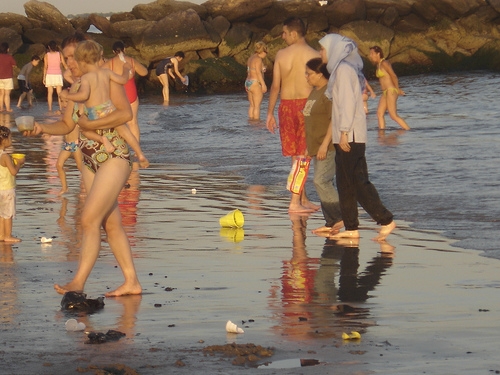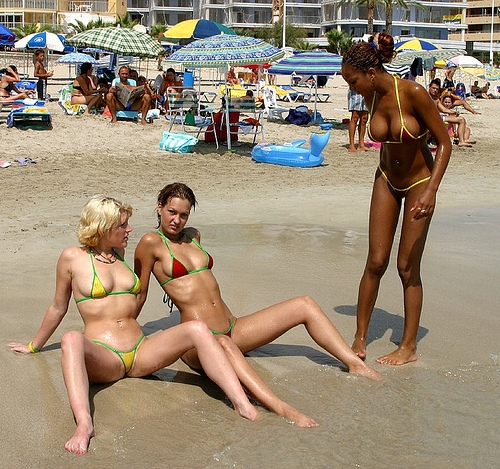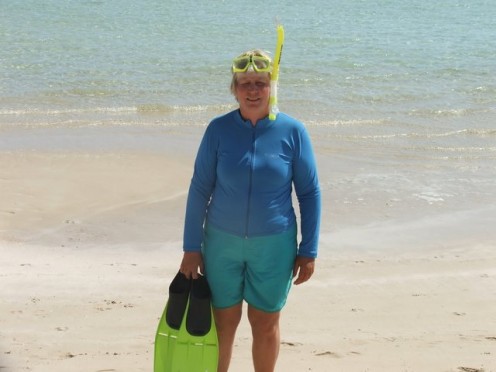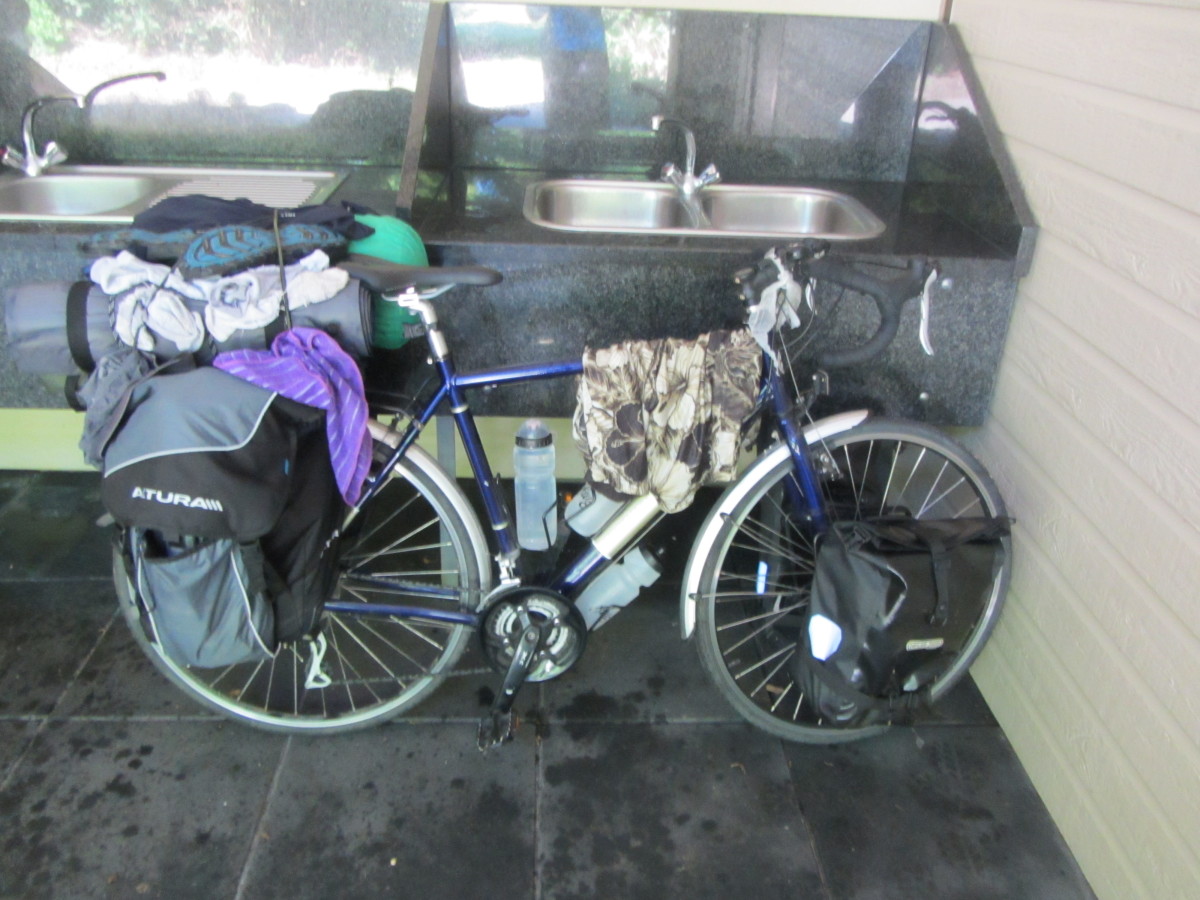Avoiding Sunburn on Holiday

Sunburn: How to avoid it
Quick question: assuming the beach is in Australia, in February, which of the beach goers on the right are most sensibly dressed? Well for my money to the 2 girls, one wearing a headscarf, both with trousers on, who are pretty sensibly dressed! In Australia's summer the UV index is 11 from 9:00am to after 5pm. The burn time is less than 10 minutes.So what's the big deal you say - I get a little burnt so what? Well the short answer to that one is skin cancer. Oh and looking like a lined old women before you hit 40!
There is an awful lot of nonsense written about what will give you cancer: everything from plastics to food have been accused as carcinogens - but one of the absolutely proven ones is the sun - and the best way to get skin cancer is to be a fair skinned person in bright sun near the tropics, at altitude, in a country with little air pollution, or on the beach or snow where the sunlight is even more effective at burning you.
Also let's face it a nasty case of sun burn can put you in hospital - third degree burns are crippling, painful and disfiguring regardless of the source of the heat: the sun or a fire. You wouldn't deliberately burn yourself on a bbq - why would you do it on a beach?

Who is most at Risk
The people most at risk are those of us with less pigment: i.e those with blond or red hair, light-coloured eyes who burn easily are most at risk.
Every time you burn you damage your skin and increase your risk of developing skin cancer.
Children and teenagers are particularly at risk. I see tourists let their kids play on the beach with next to no clothes on and wonder why that is not counted as child abuse - especially when they are white and clearly just got off the plane from a cooler climate.
A suntan is just a symptom that your skin is damaged. There is no such thing as a safe tan. The only safe tan comes out of a bottle.
Where you are most at Risk:
Countries that are under the ozone hole: Australia, New Zealand, Chile, southern Argentina. With the ozone hole you can even be burnt on a cloudy day.
At the beach, especially a white sand beach where the sand will reflect the sun and effectively burn you twice.
At sea or on the snow - again the sea/snow reflects the UV and you where you don't expect to be burnt.
High altitude skiing destinations
On the water.

Tips for Avoiding Sun Damage on your Vacation
- Stay out of the direct sun. As Noel Coward famously sung: "Only mad dogs and Englishmen go out in the midday sun". However in hotter parts of the world the midday sun extends from 10am to 4pm!
- Cover up: The Arabs where loose cotton clothes not just to protect themselves - covering up actually keeps you cooler in a dry climate - you don't dehydrate as much.
- Wear a wide-brimmed hat - not just a baseball cap. Where good quality sunglasses with large lenses. I got burnt wearing the outfit on the left over about 3 hours: what got burnt - my head - I have very thick hair but I still got burnt through it because I wasn't wearing a hat in the water!
- Where 30+ Suntan Lotion. Anything less that 30+ is a waste of time ,according to the experts anything more than 30+ is a waste of money - you sweat and wear it of at the same rate. I wear a combined suntan/moisturiser on my face everyday. The reason that the Australian's think that the Irish and Scottish have lovely complexions is quite simple - the fair skin Celts who haven't migrated from their homelands have very little sun damage to their skins!
More Information: Skin Cancer
- Skin Cancer Home Page - National Cancer Institute
Information about skin cancer treatment, prevention, causes, screening, clinical trials, research, and other topics from the National Cancer Institute. - Skin Cancer: symptoms, detection, prevention, and treatment options
Skin Cancer Guide: Symptoms, detection, prevention, and treatment options for Basal Cell Cancer, sBCC (Superficial Basal Cell Cancer), Squamous Cell Cancer, Melanoma, and Actinic Keratosis - Skin Cancer: Saving Your Skin From Sun Damage -- familydoctor.org
Information about skin cancer from the American Academy of Family Physicians.
The Author
Lis Sowerbutts has been traveling since age 7, and has to date visited over 55 countries. She firmly believes in travel for the over-30's and that you are never too late to start traveling



